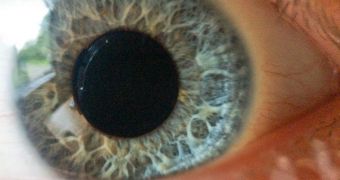Neuroscientists discovered some time ago that, when people's mind wanders, individuals tend to blink more. The same holds true for those who can no longer pay attention to a boring topic at a conference, for example, and start daydreaming. In a recent scientific study, it was revealed that the body itself gets directly involved in not being attentive to what is going on. The unusual amount of blinking is apparently due to the fact that the mind wants to set a small barrier – the eyelids – between a person's mind and the external environment.
In other words, the researchers behind the new study says, the mind cannot and does not ignore what's going on on the outside all on its own. Physical manifestation, such as eyelids blinking, also helps. The team has also come to realize that “you can't think about these mental processes, like attention, separately from the fact that the individual's brain is in a body, and the body's acting in the world.” The study effort was coordinated by researchers at the University of Waterloo, who were led by cognitive neuroscientist Daniel Smilek. Details of the investigation appear in the latest issue of the respected APS journal Psychological Science.
Smilek has been involved in studying the mechanisms that underlie the way people pay attention to events and things around them (or don't) for many years. Before starting this particular study, he learned from other neuroscience papers that the human cortex can shut down certain portions of itself when people get distracted. Usually targeted are those regions that process external information, and then integrate it into the overall awareness each individual has. “And we thought, OK, if that's the case, maybe we'd see that the body would start to do things to prevent the brain from receiving external information. The simplest thing that might happen is you might close your eyes more,” the research explains.
Together with University of Waterloo colleagues and experts Jonathan S.A. Carriere and J. Allan Cheyne, Smilek analyzed 15 volunteers, who were asked to read an excerpt from a book on a computer screen. Their eye movements were tracked using a high-definition camera, that could detect what word the participants read, as well as their reaction to it in terms of blinking. At irregular intervals, the computers emitted a beep-type sound, that surprised participants, and then the researchers would ask them if they were paying attention to what they were reading, or if their mind was wandering. A clear correlation between excessive blinking and the wandering mind was immediately visible.

 14 DAY TRIAL //
14 DAY TRIAL //